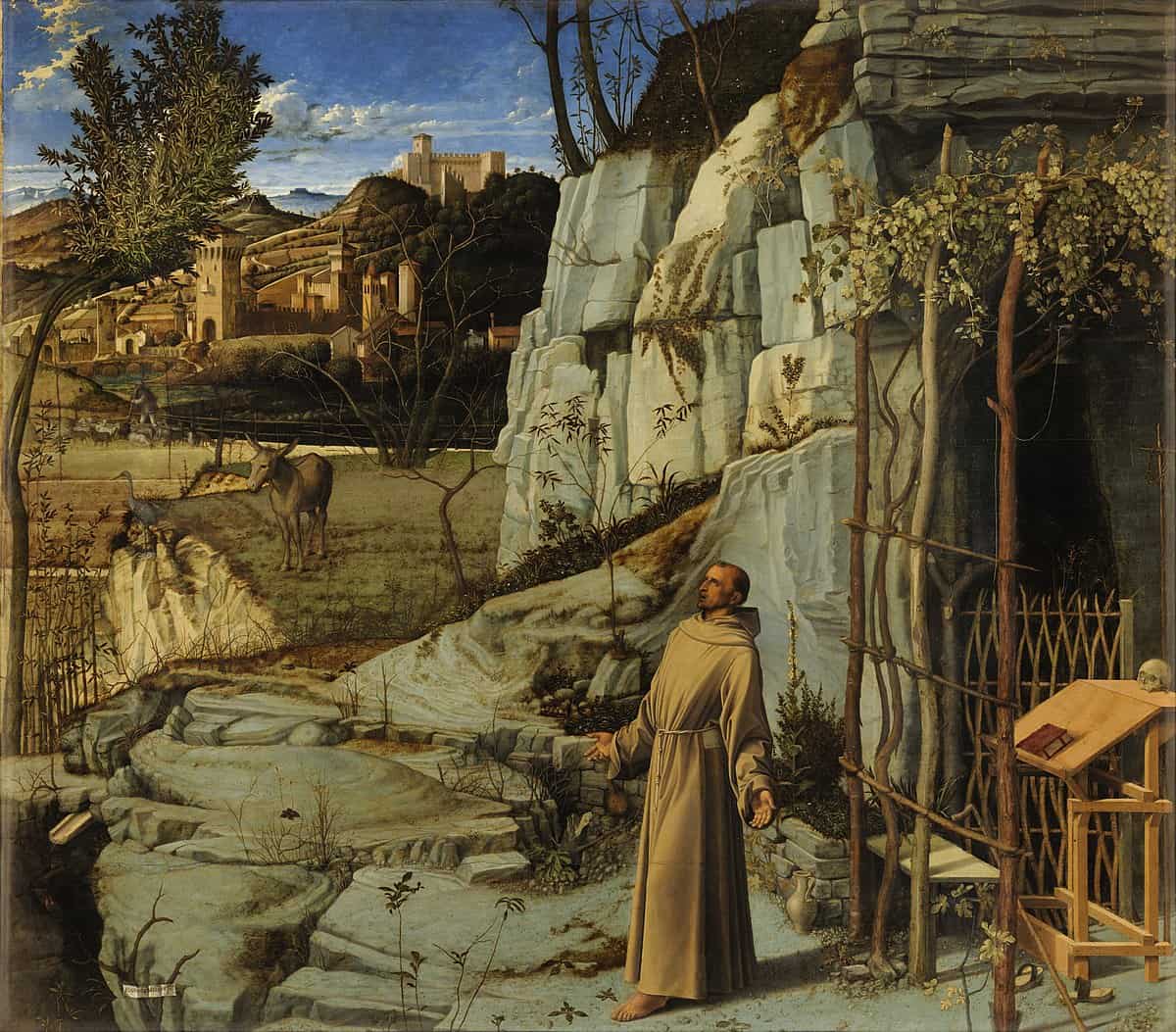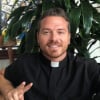One of the first memories I have of visiting my grandpa’s house, which we did weekly in my childhood, was seeing calendars and envelopes piled up on one of his tables. The calendars sported brightly colored photographs of wildlife and natural scenes- incredible shots that made me wonder at the majesty and diversity of the natural world. I later was able to read words like World Wildlife Fund, Nature Conservancy, and National Geographic on their covers. The stacks of envelopes were less flashy, but still interesting. They always had little logos in the top left corner that had words like Friars Minor, Poor Clares, and Capuchins, which I was pretty sure was a type of monkey. I found out later that the reason my grandpa received so many calendars and envelopes is because he was constantly donating money to these organizations. It wasn’t until years later that I realized how unusual it was that a man living in a simple house with few possessions, a man who seemed to eat mostly from his own vegetable garden, could give away so much money.
I only later learned that my grandpa and grandma were both third order or “secular” Franciscans, a group that can include lay people who do not live in community or take vows. They were touched enough by the witness and the preaching of St. Francis to dedicate their lives in this special way to his charism. My grandpa’s Franciscan formation began much earlier than this, back to the Franciscan parish in which he was baptized and raised in in Batesville, IN. Like so many others, including the New Testament’s Timothy, I inherited a great deal of my faith. Much of it can be attributed to my grandpa Harold, and further traced to St. Francis, through his followers. As ecology now teaches us, nothing in Creation exists outside of a vast web of connection. It is how our Creator decided to create.
Fertile Franciscan Soil
My home city of Cincinnati has a strong Franciscan influence, and I didn’t recognize as a kid how much this influenced me. I only knew there was one person in my family, my mom’s cousin Friar Jack, who wore a brown robe at family gatherings. I later saw other men wearing these same robes at a special little community called Friarhurst. Friarhurst was a Franciscan retreat house about 10 minutes from my childhood home, and we would go there for Sunday Mass about once every month. The physical place itself was beautiful, with a flowing water feature and pretty gardens. The mass always felt a little more exciting there, maybe just because it was a change of pace. It was my first real exposure to religious life.
A Bridge Back to the Church
I found myself a decade and a half later feeling quite far from the Friarhurst days in more than just calendar time. I was in the second year of my PhD program researching and studying ecology and conservation biology. I spent morning until night occupied with reading, writing, teaching, and repeating. I wasn’t spending a lot of time thinking about my relationship with God and the Church. Most of my friends had slowly fallen away, and although I continued to go to Mass on Sundays, I didn’t do much more than that. Without thinking a whole lot about it, I was starting to think of the Church as largely irrelevant, both to my life and what was going on in the world.
It was easy to see how the work I was doing in ecology and conservation biology was quite important for the world, but it didn’t feel in any way connected to my faith life and what happened in Church on Sunday. One Sunday I saw that the Newman Center at the University of Missouri where I attended mass offered a “Newman Scholars” program which would pay students to research a topic in the Church and present their findings to the greater community. The possible topics listed did not interest me- liturgy, church history, theology, etc. But the last option caught my eye: “propose your own topic.” It was my chance to see what the church had to say about ecology and environmental stewardship. I feared I would be disappointed, and that it might even be my last straw with the Church but I applied anyway and was granted the scholarship opportunity.
An Unexpected Bounty
What I found was a small unexpected treasure trove. Recent Popes St. John Paul II and Benedict XVI had written and spoken powerfully about our Christian duty to protect God’s creation. Not only were there modern writers and whole communities concerned with the topic, but Christian writing tracing back to the first century talked about how our discipleship requires caring about creation. Despite the multifaceted influence through Church history, it became clear that no single person influenced the Catholic Church’s understanding of the importance of Creation more than St Francis of Assisi. I based much of my Newman scholarship work on the book Care for Creation: A Franciscan Spirituality of the Earth which flowed from the influence of that 13th Century Italian friar. This book linked together the concept of creation and incarnation, something I had not previously connected. It highlighted St Francis’ worldview of creation as family- something ecology describes empirically but not necessarily spiritually. It described the interior contemplative aspect that time in creation can foster, something I had indeed experienced often but did not have words for. Finally, it talked of the possibility and importance of ecological conversion– a word that was new to me but that I would later hear much more frequently.
Laudato si- Praise to you, Lord!
I did my Newman Scholars project in 2010, and just five years later the subject of Church and ecology was forever changed with the release of Pope Francis’ 2015 encyclical Laudato si. Not only is Pope Francis the first pope in history to take the name Francis, he also named his encyclical after words from St. Francis’ famous canticle. In just seven years, this document and the movement it inspired have invigorated people to follow in St. Francis’ footsteps to expand our idea of kinship to the rest of the created world. It’s nothing short of miraculous.
As I continued the journey of deepening my own faith, I found myself asking how I might better share the peace I had found with a world in such short supply of it. I found myself happier living a voluntary simplicity like the one my grandpa had. I found myself attracted to the idea of being part of a welcoming community like the one at Friarhurst. As the idea of religious life slowly grew in me, I vaguely thought God might lead me to some Franciscan order. That’s not how it happened.
Around this time I rediscovered the Jesuits, and began to relearn about the order’s charism and spirituality that had educated me in high school. The emphasis on education, the spirituality of finding God in all things, and especially the Spiritual Exercises, drew me in. I also learned of the Society’s relatively recent efforts to focus more on ecology and care for creation through programs like EcoJesuit and Healing Earth. After all, Pope Francis’ message of Laudato si and integral ecology reminds us that the world doesn’t simply need more ecologists or Franciscans. Rather, the world needs Francis’ mission and radical sense of connectedness integrated into all sectors of life. Even St. Ignatius contemplated imitating a life like St. Francis during his famous convalescence. That’s not how God wanted it. Both Ignatius and Francis’ lives show us what nature so clearly shows us: God delights in creating through diversity.
On this feast of St. Francis of Assisi, let’s give thanks for this man’s life of witness and pray that his inspiration will continue to branch out through generations and across boundaries.
-//-
St. Francis in the Desert by Giovanni Bellini can be seen in the Frick Collection in New York City.


